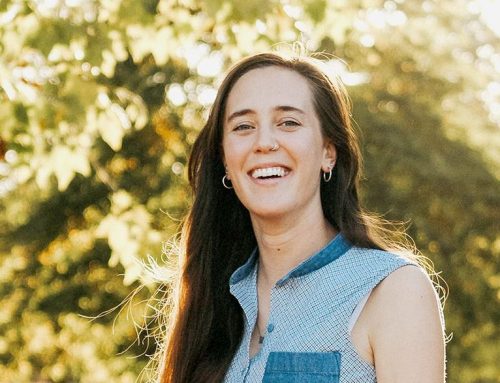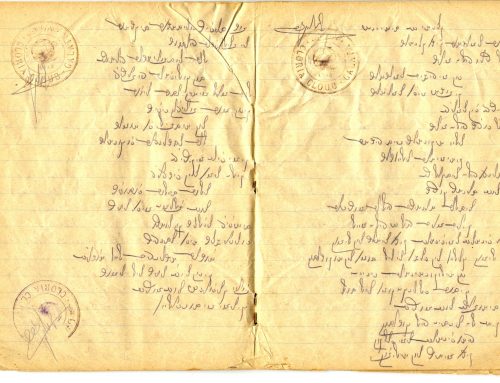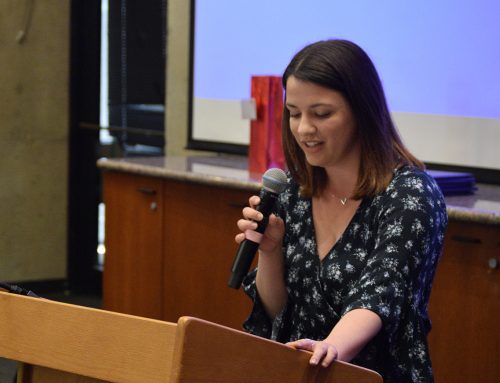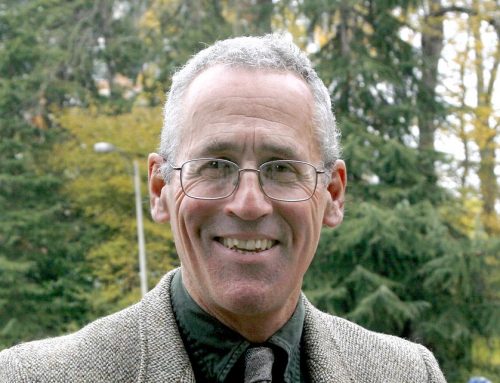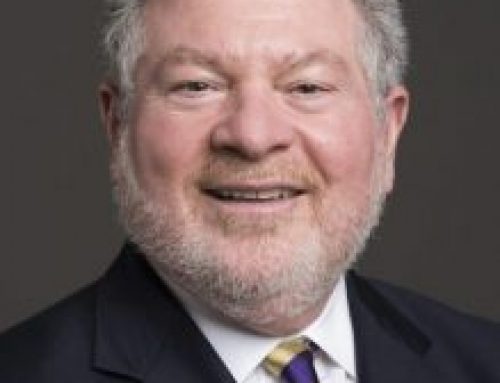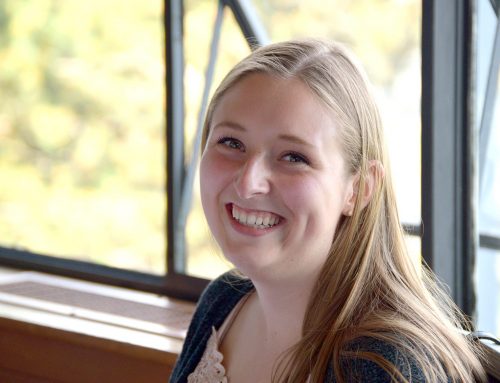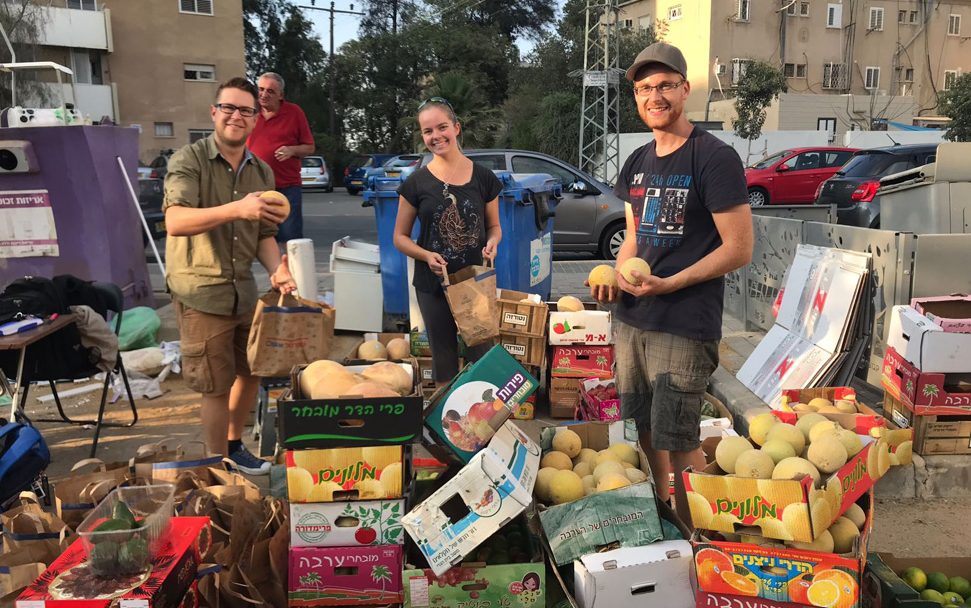
Volunteering at a food drive in Be’er Sheva, Israel. Author Marissa Gaston pictured in the center.
Special thanks to the Mitchell F. and Sophie Wise Ehrlich Student Support Fund in Jewish Studies for supporting opportunity grants to students, and to Honorary Board member Arlene Ehrlich for establishing this fund in memory of her parents.
By Marissa Gaston
As I write this essay, I am a few weeks away from finishing the second semester abroad that I never expected would happen. When I arrived in the Negev desert on a blazingly hot day in July 2018, I thought my time in Israel would only last until December.
As the soaring temperatures of August mercifully eased into an autumn détente and then a winter lull, I didn’t anticipate making it full circle back to another Israeli summer. So, what made me stay?
In a word: community.
The chance to continue being a part of a dynamic, multi-faceted, and deeply international community compelled more than any other single factor to seize the opportunity to remain in the Negev for another semester.
And I have relished it.
Coming to Israel hasn’t just allowed me to fulfill my original goals of exploring the faiths, histories, and cultures rooted here; it has also brought me into a kaleidoscope of international perspectives and learning. I’ve had more than my fair share of satisfying political discussions with this diverse mélange of students.
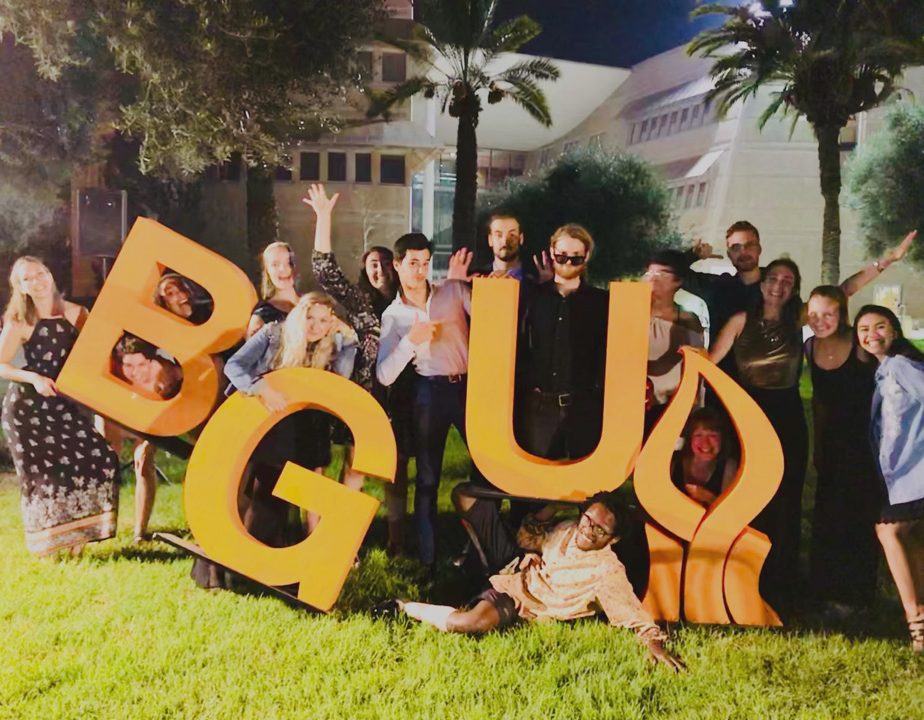
BGU students celebrate finishing an ulpan Hebrew language program
For instance, listening to the Italian song “Bella Ciao” with my Italian friends led to talking about Mussolini’s persecution of partisans in northern Italy during the Second World War. I’ve learned about what it’s like to be a young German two or three generations removed from the Holocaust but remaining deeply aware of its memory; about the tension between religion and secularism in France; and about the different experiences of Jewishness felt in Europe, the USA, and Israel.
But I’ve also found that especially precious moments among this community tend to surface amongst levity and mirth. I’ve debated the merits of pineapple pizza with Italians and quipped exasperatedly with Israelis about the collective unwillingness in this country to form lines (at the store, getting on the bus… anywhere and everywhere).
My reflex now is to refer to “soccer” as “football,” and although using kilometers has slowly become almost as intuitive as using miles to measure distance, I continue to constantly struggle with communicating the weather when my default is Fahrenheit and the entire rest of the world thinks in Celsius.
A very small handful of people have been here all year, like me, and that reality has knit a special link between us. They have been my constants in a continual, shifting flux of people around me who come and go after the span of an ulpan language intensive, after a few months, or after a semester. My goodbyes with these long-term friends will be the most bittersweet, I’m sure.
Travel, I have come to realize, is about people far, far more than it is about place. After all, places are defined by people and their relationships to them: how they relate to, identify, and interact with them. One of my favorite cities, Jerusalem (as I touched upon in my fall essay) embodies and showcases this. The Western Wall would only be a stack of stones without the ongoing reverence and memory that people still bring to it every day, over two thousand years later.
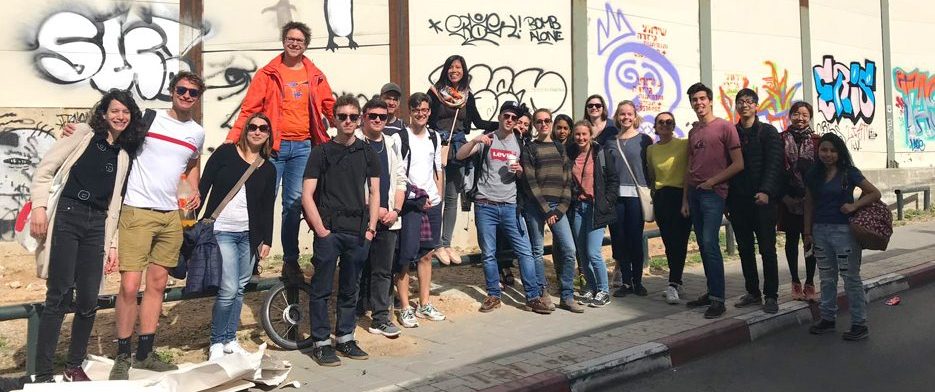
BGU students on a second-semester group trip to Tel Aviv.
Thus, this essay isn’t just a reflection on spending more than double the time I expected to in Israel; it’s also a testimony and a love letter to the intensely international experience of studying abroad.
Israel feels like an appropriate place to have experienced all this. In a spectacularly multi-faceted society, I found a home in perhaps an even more multi-faceted micro-community.
I have to wonder, if we all focused on cultivating bonds of friendship in our respective micro-communities – on finding ways to share laughter and learn from our differences – what sorts of changes could we reap in this world? How much conflict could we soothe if we all focused just a little bit more on harmony?
It’s easy to say we want to facilitate “dialogues” and “talk” about the things that divide us – after all, we all love the sound of our own voices. But what’s not so easy is being willing to listen to the voices of others.
 Marissa Gaston is a political science major on the international security track with planned minors in history and classics. She participated in the Overseas Student Program at Ben-Gurion University of the Negev (BGU) in Beersheba, Israel, from July 2018 to July 2019 through the support of Stroum Center opportunity grants. At BGU, she studied political science with an emphasis in Israeli studies, as well as Hebrew.
Marissa Gaston is a political science major on the international security track with planned minors in history and classics. She participated in the Overseas Student Program at Ben-Gurion University of the Negev (BGU) in Beersheba, Israel, from July 2018 to July 2019 through the support of Stroum Center opportunity grants. At BGU, she studied political science with an emphasis in Israeli studies, as well as Hebrew.

